No Results Found
The page you requested could not be found. Try refining your search, or use the navigation above to locate the post.

Dealing with the Past in The Basque Autonomous Community: Toward A Post-Transitional Justice Process?
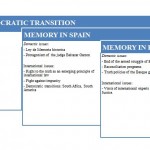
As the Srebrenica commemorations highlighted few weeks ago, it is obviously hard to deal with the past after a period of violence. Indeed, violent episodes generate storytelling clashes through the memory-making process, focusing on the need to build a pacific common space to share different sufferings and ensure a positive peace,
In the Basque Autonomous Community, the development of a memory-making process could be linked with a form of “post-transitional justice”. This notion derives from the concept of transitional justice, which designs “the set of judicial and non-judicial measures that have been implemented by different countries in order to redress the legacies of massive human rights abuses”. It is based on four pillars: the right to the truth, the right to justice, reparations and guarantees of non-recurrence. Thus the post-transitional justice deals with the implementation of these four pillars after a period of strong violence. For example, the trial in 2011 dealing with the ESMA in Argentina could be analyzed as a form of post-transitional justice, as they occurred thirty years after the end of the military junta.
Impressions from the Basque Country
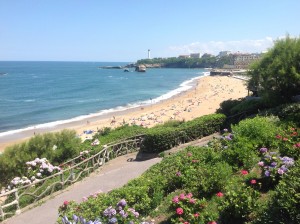 Traveling from the cool and cloudy Bilbao towards the sweltering heat of Barcelona, I feel a tinge of regret for the unseen, undiscovered, of inability to savor all the wonders of one place in a short period of time. In my mind’s eye, people and places I visited in the Basque country become alive.
Traveling from the cool and cloudy Bilbao towards the sweltering heat of Barcelona, I feel a tinge of regret for the unseen, undiscovered, of inability to savor all the wonders of one place in a short period of time. In my mind’s eye, people and places I visited in the Basque country become alive.
Women in Conflict Creation: The Misattribution of Political Agency
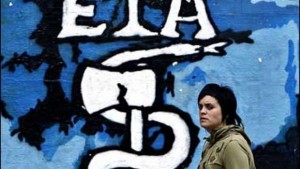 A woman’s role in peace and security has always been a topic of hot debate. After decades of victimization, the groundbreaking UN Security Council Resolution 1325 redefined the women’s role and welcomed a feminine approach to peace and mediation processes.
A woman’s role in peace and security has always been a topic of hot debate. After decades of victimization, the groundbreaking UN Security Council Resolution 1325 redefined the women’s role and welcomed a feminine approach to peace and mediation processes.
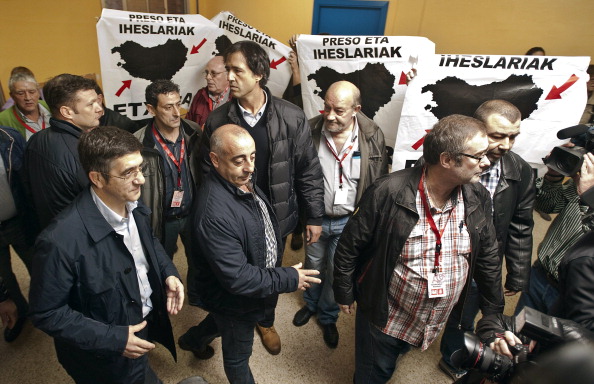
Reassessing Electoral Systems in the Basque Country
In 2012, the Basque country held parliamentary elections; as a result, the emerging Bildu coalition grasped a surprising amount of seats. This separatist party follows a political platform of Ezker Abertzalea, or “patriotic left.” This platform has also been...
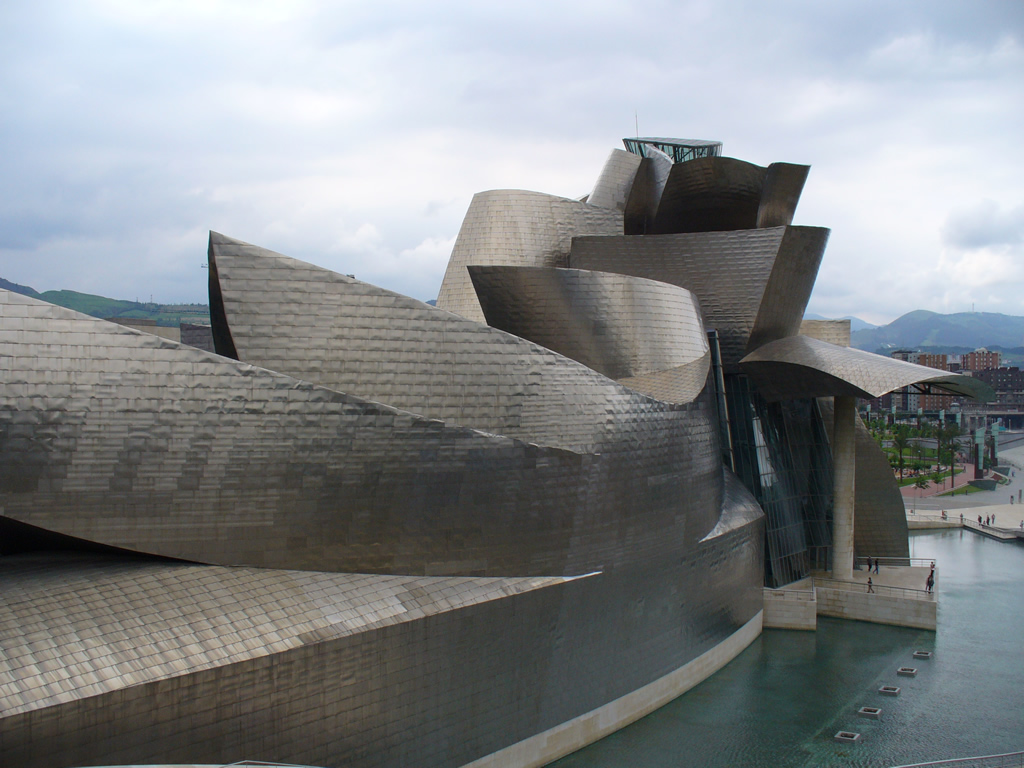
Will PODEMOS Negotiate with ETA?
With the recent victory of Alexis Tsipras and his anti-austerity party Syriza in Greece, eyes are now watching the direction the Spanish may take in their upcoming December elections. A new political party with a politically savvy young leader is taking Spanish...
Inaugural “All Conflict is Local” Conference a Success
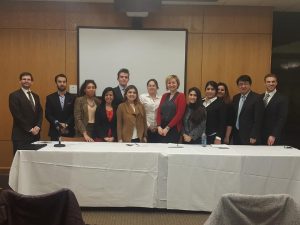 The Center for Peace and Conflict Studies at Seton Hall University held a two-day conference on April 4-5 called “All Conflict is Local: Personal Experience, Reflection, and Conflict Resolution.” This conference was a unique opportunity for students studying conflict and post-conflict reconstruction to present their research to the Seton Hall community.
The Center for Peace and Conflict Studies at Seton Hall University held a two-day conference on April 4-5 called “All Conflict is Local: Personal Experience, Reflection, and Conflict Resolution.” This conference was a unique opportunity for students studying conflict and post-conflict reconstruction to present their research to the Seton Hall community.
The conference was organized by Dr. Zheng Wang, director of the Center for Peace and Conflict Studies, a specialist in global negotiation and conflict management, and an expert on the Asia-Pacific region.
Paola Ordonez
 Paola was born in Colombia and her native language is Spanish. She earned her undergrad degree at Universidad Autonoma de Colombia in Bogota, Colombia. Her bachelor´s degree was in International Economic Relations. For five years, she has worked for an American multinational company in Bogota. She moved to the USA in 2013 as a part of an exchange program. Later in 2014, she moved to New York City to formally study English at Hunter College, and in 2015, she decided to earn her masters degree in Diplomacy and International Relations at Seton Hall University. Since she started her masters program, she has been a research assistant of the School of Diplomacy, contributing to Latin American political tendencies research and currently contributing to the Basque Country Team activities and individual research about ETA. She is very passionate about conflict resolution since her country endures one of the longest violent conflicts of Latin America, and she wants to learn from the experiences of other regions such as the Basque Country. Paola also visited Cyprus with some of her classmates to learn more about their current conflict and future perspectives.
Paola was born in Colombia and her native language is Spanish. She earned her undergrad degree at Universidad Autonoma de Colombia in Bogota, Colombia. Her bachelor´s degree was in International Economic Relations. For five years, she has worked for an American multinational company in Bogota. She moved to the USA in 2013 as a part of an exchange program. Later in 2014, she moved to New York City to formally study English at Hunter College, and in 2015, she decided to earn her masters degree in Diplomacy and International Relations at Seton Hall University. Since she started her masters program, she has been a research assistant of the School of Diplomacy, contributing to Latin American political tendencies research and currently contributing to the Basque Country Team activities and individual research about ETA. She is very passionate about conflict resolution since her country endures one of the longest violent conflicts of Latin America, and she wants to learn from the experiences of other regions such as the Basque Country. Paola also visited Cyprus with some of her classmates to learn more about their current conflict and future perspectives.
Exhibition “Changing Perspectives” hosted by the School of Diplomacy
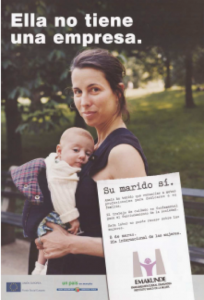 The School of Diplomacy together with the Basque Government Office in NYC has launched an exhibition “Changing Perspectives” on the three decades of work of the Basque Institute for Women – Emakunde. The exhibition is included in the Seton Hall University’ Petersheim expo and it represents the School’s continued efforts to develop partnerships with academic institutions, government, think tanks and civil society of the Basque Country. It features posters depicting various campaigns and work of Emakunde.
The School of Diplomacy together with the Basque Government Office in NYC has launched an exhibition “Changing Perspectives” on the three decades of work of the Basque Institute for Women – Emakunde. The exhibition is included in the Seton Hall University’ Petersheim expo and it represents the School’s continued efforts to develop partnerships with academic institutions, government, think tanks and civil society of the Basque Country. It features posters depicting various campaigns and work of Emakunde.
Emakunde was created in 1988 as the Basque Institute for Women. It was awarded the 2015 United Nations Public Service Award for “Promoting Gender Responsive Delivery of Public Services”. As an autonomous body of the Basque Government, Emakunde has promoted and led the process of development, implementation and evaluation the equality policies of women and men in the Basque Autonomous Community 1988 including the Law for Equality between Men and Women passed in 2005…

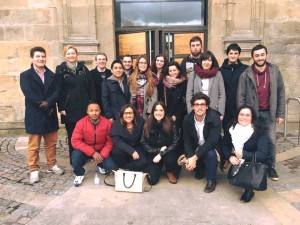 In January 2016, Dr. Borislava Manojlovic led a team of students in an immersive study abroad trip to the Basque Country, Spain. The course, titled “Memory and Conflict: Dealing with the Past Constructively,” allowed students to discover how different actors and institutions address processes of dealing with the region’s contentious past through education, justice, policymaking, and art.
In January 2016, Dr. Borislava Manojlovic led a team of students in an immersive study abroad trip to the Basque Country, Spain. The course, titled “Memory and Conflict: Dealing with the Past Constructively,” allowed students to discover how different actors and institutions address processes of dealing with the region’s contentious past through education, justice, policymaking, and art.